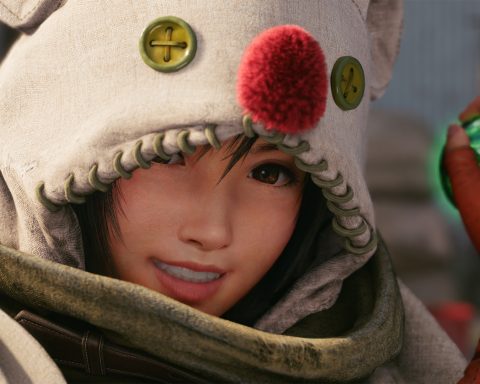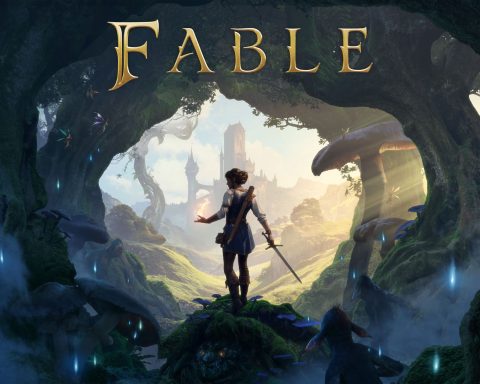Interview by Matt S.
Ossian Studios recently released an iOS-exclusive RPG that offers the depth you’d expect from a console or PC game, and in doing so have reinforced the reality that for some genres, mobile platforms are every bit as capable as their traditional platform counterparts.
This is a studio that has been around for many years now, and has a lot of experience in working with other developers and publishers on their games. Ossian Studios has worked with BioWare and CD Projekt on their properties, so The Shadow Sun represented two risks – risking that people with iPads would want to play in-depth, traditional RPGs on the platform, and then the risk of building a new IP rather than working on an established brand.
We’re glad they did. The Shadow Sun is a unique, creative, and entertaining throwback to classic western RPGs, and with any luck the team can take the good work they’ve done in creating a new IP and game world and move spin it into a full franchise.
We sat down with Ossian Studios’ CEO, Alan Miranda, to have a chat about The Shadow Sun, the potential the studio sees in the mobile platform, and some of the opportunities that he sees in the games industry going forward.
Digitally Downloaded (DD): Ossian Studios has been around and independent for a couple of years now; how would you say the games industry has changed in terms of the opportunities and challenges that you face?
Alan Miranda (AM): I think the biggest opportunity in the last few years has come in the mobile space and the Apple App Store specifically. Allowing anyone creating an app to reach a huge player base is incredible, and that player base keeps growing every year. The challenge you face is still visibility – making sure that gamers who would want to play your game, KNOW about your game. In a literal sea of iOS games, you have to make sure your game stands out, so making a top-quality RPG was our number one priority with The Shadow Sun.
DD: What inspired you to develop a high quality RPG for the mobile platforms?
AM: Prior to Ossian developing TSS for iOS, we made fantasy RPGs for publishers or other developers (BioWare, Atari, CD Projekt). Unfortunately, in each of those cases, something that was completely out of our hands went awry, like delays and cancellations on the publisher side. For any developer, that’s extremely frustrating and potentially devastating financially. That’s why being able to make a game that we could bring directly to a fanbase appealed to us so much.
So back in December 2009, it seemed to us that there was an absence of high-quality Western RPGs on iOS, made by experienced RPG developers. We saw that as an opportunity for us to jump in and start making one instead of trying to make a PC RPG in an already crowded marketplace.
DD: Where did the idea for The Shadow Sun come from? AM: Having worked on numerous fantasy stories for our previous games, we knew we wanted to create something deeper and more intriguing than a story backdrop of a war or an obvious menace like an undead horde overrunning a kingdom.
So we put our heads together and developed the idea for a shadow that was slowly creeping across the face of the sun. It seemed like a great premise for a world in peril – an epic backdrop for the fantasy stories we wanted to tell. It was mysterious and Lovecraftian in its otherworldliness.
In terms of story and lore, our lead designer, Luke Scull, had some initial thoughts on the style of world The Shadow Sun would become. It would have a rougher edge to it, similar to what we did for our unreleased Witcher expansion, Scars of Betrayal, but still have the sense of high adventure that we had done in our Dungeons & Dragons games. Luke, being the big fantasy reader that he is (and now fantasy author in his own right!) drew inspiration from the Malazan and A Song of Ice and Fire novels. That rougher edge reminded me very much of Robert E. Howard’s Conan stories, with their setting of early human civilizations and magic being a rare power wielded by few, so that became my own inspiration for the game.
In early 2010, I began creating a massive amount of background lore, such as maps, histories, creatures, etc., and showing these to Luke. He was already building a rough storyline, so the two merged together in a very organic way to become the story you see in the final game.
DD: The game seems loosely based on Arabian mythology; it’s a theme that we wish would be explored in games more often! Were there any difficulties around the theme that perhaps explain why we don’t see many other games with this kind of setting?
AM: It’s not so much Arabian as it is ancient middle-eastern, like the Babylonian and Sumerian civilizations. It’s true that most RPGs stick with the Northern European fantasy setting of castles and knights, and probably do so because it’s a safer bet sales-wise. In our case, our world is huge, and it does in fact have a northern region like Northern Europe, but we were setting our first game in the southern deserts, so its flavour had to be unique to that region.
The original inspiration for that kind of locale (deserts, palm trees, jungles, etc.) actually came from our ideas for Neverwinter Nights 2. Towards the end of working with the NWN2 franchise, we had started imagining an expansion that took place in the south of the Forgotten Realms. But when NWN2 dried up from Atari in early 2009, those burgeoning ideas carried over into TSS.
DD: Does it concern you that mobile games seem to be monetised differently (such as free-to-play), but you’ve focused on a more traditional costing model? What inspired the decision and would you have been able to make this game as a free-to-play experience?
AM: Free-to-play is such a misnomer because if games were indeed free, then there would be no money to be made from them, and hence nobody making them (which isn’t the case). If you do manage to play one of those games for free, you do so at the expense of your own enjoyment (to varying degrees) unless you pay. “How to play game X with spending as little money as possible” seems to be a common feature of articles these days. But can you imagine a book where pages become increasingly difficult to turn unless you insert more money? I personally think all players would have a more enjoyable experience from simply buying a great game instead of one that’s been intentionally hamstrung.
Yes, there are a lot of pay-to-play games in the mobile market, but to be honest, that model just isn’t Ossian. We have no desire to intentionally design gameplay mechanics that exploit players by turning the game into a hard grind in order to leech money out of them in cunning ways. We believe in giving them a great game up front in return for a flat price. We also believe in expanding their experience with new additional content like expansions or smaller DLC. I think the premium model is just as viable as the pay-to-play one, which is why you’re seeing bigger titles like Baldur’s Gate and XCOM coming to mobile – the sales are happening.
DD: As The Shadow Sun is a Unity-based game, are you considering porting it to consoles as well? Which consoles would you like to see it on the most?
AM: After the iOS version comes out, we’ll be looking at other mobile platforms, such as Android. Past that, it’s hard to say. The game was originally designed with a certain set of iOS criteria in mind, and we would have to evaluate very closely to see how well that could be ported to consoles or the PC/Mac. But the Unity engine does give us that option should we so choose, which is great!
DD: Have you got plans to spin this into a full franchise? AM: That was always the goal we envisioned – creating a new fantasy world that we could continue to expand and set future games in. We’ve worked on big franchises in the past, which was awesome (and we may yet again!) but being able to sculpt our own world how we see fit also has great appeal. First things first though – we have to wait and see how well our game does before there’s any talk of “franchise”!
DD: What are some of your longer-term plans for Ossian Studios?
AM: After having poured so much effort into the lore of The Shadow Sun, it makes the most sense to keep building on that. So we’d like to continue making games set in that world and potentially have them reach across all platforms (mobile/PC/console). We have ideas but we won’t be talking about them just yet.
DD: Which game developers/ studios inspire you the most, and why?
AM: Back in the late 90s, it was BioWare that inspired me the most. It was cool to see a smaller, passionate, and humble developer create such a fantastic game as Baldur’s Gate. That was the reason why I applied and eventually worked there. Then into the late 2000s, I had the exact same impression of CD Projekt when they were about to release the original Witcher. And in speaking with Marcin Iwinski, I found CD Projekt to be of the smaller, passionate, and humble variety of developer that I so admire. They never seem to lose their down-to-earth attitude and genuinely listen to their fans.
DD: Finally, what games are you playing at the moment?
AM: “The moment” is rather busy with the impending release of The Shadow Sun, so there’s little time for playing. But I have just gotten The Shivah for iPad (my wife/business partner and I are big adventure gamers), and I’ve tried out a bit of Dishonored recently. I’m not really into steampunk but the gameplay reminds me a lot of Thief, of which I’m a big fan. Come the holidays though, it’ll be gaming central, as we kick back and relax with a backlog of games that we had to put off until The Shadow Sun was done. After four years, there’s quite a few!
– Matt S.
Editor-in-Chief
Find me on Twitter: @digitallydownld







